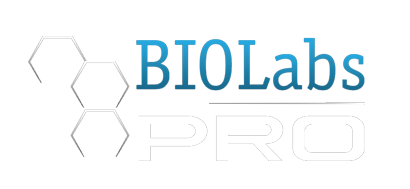Do Estrogen Blockers Increase Testosterone?

Do Estrogen Blockers Increase Testosterone?
If you’re interested in weight loss or want to build muscle fast, you might have considered estrogen blockers. Or if you have low testosterone and are looking for replacement therapy to feel great again, estrogen blockers might be the answer. But how do you know if testosterone boosters really work?
Lately, estrogen blockers have become popular and what's written about them varies. However, research suggests that estrogen blockers increase testosterone
What are Estrogen Blockers?
Using estrogen blockers can be scary for some people because estrogen and testosterone are the two most important sex hormones in the body. Estrogen is known as the female hormone, but men produce it as well. It helps with sperm production and maintains healthy joints and brains. When men have low or high estrogen levels, it can cause health concerns.
Estrogen dominant symptoms include:
- heart issues
- increased risk of stroke
- prostate concerns
- gaining weight
- gynecomastia (increased female-type breast tissue)
- erectile dysfunction (ED)
- Increased risk for cancer
How Do Estrogen Blockers Work?
Estrogen blockers use aromatase inhibitors to prevent production in a man's body. With diminished estrogen, testosterone increases. Higher levels of testosterone may increase muscle mass, sexual drive, and improved mood. Other benefits might be improved cognitive ability and higher energy levels. All of which, work together to help with fat loss as well as optimizing your overall health.
Type of Estrogen Blockers
You have the choice between natural methods or pharmaceutical products for increasing your testosterone level with estrogen blockers.
The following are some natural productions for lower estrogen levels.
- Cruciferous vegetables: Broccoli and cauliflower are a yummy way to decrease estrogen.
- Grape seed extract: The extract is made from pulverizing the seeds of grapes. High levels of estrogen have been connected with breast cancer.
- Maca: The cruciferous plant blocks estrogen production and helps improve fertility in both men and women.
- Chrysin: The results are mixed on whether it increases estrogen, the flavonoid is found in honey and bee propolis.
- Wild nettle root: The root is often used to help with prostate problems and reduce estrogen levels.
For some, a natural estrogen blocker isn't effective or want a pharmaceutical grade hormone replacement. Typically, postmenopausal women take pharmaceutical grade estrogen blockers, but lately, they've grown in popularity for men as well. One possible side effect of testosterone replacement therapy (estrogen blocker) is sterility. But estrogen blockers like Clomid, help increase testosterone without affecting fertility.
How to Take Estrogen Blockers?
You can take estrogen blockers through a cream or capsule form. Research shows that taking them for short periods has a positive effect on your health. But daily use over an extended period of time could produce unwanted side effects.
When men or women have elevated levels of estrogen, this can increase the risk of cancer and other serious diseases. One solution is using estrogen blockers to increase testosterone, whether it's naturally or with bioidentical replacement therapy, finding hormonal balance is the key.
If you enjoyed this article it would mean a lot to us if you would share it... :)
Click the share button below to help grow the Smarter Health™ family!
Hormone Therapy for Breast Cancer. (n.d.). Retrieved from https://www.cancer.org/cancer/breast-cancer/treatment/hormone-therapy-for-breast-cancer.html
Hormone therapy: Is it right for you? (2018, May 24). Retrieved from https://www.mayoclinic.org/diseases-conditions/menopause/in-depth/hormone-therapy/art-20046372
Leonard, J. (n.d.). High estrogen: Symptoms, causes, and treatment. Retrieved from https://www.medicalnewstoday.com/articles/323280.php
Peck, P. (2004, February 23). Testosterone Replacement Therapy: Is It Safe? Retrieved from https://www.webmd.com/men/news/20040223/testosterone-replacement-therapy-is-safe#1



